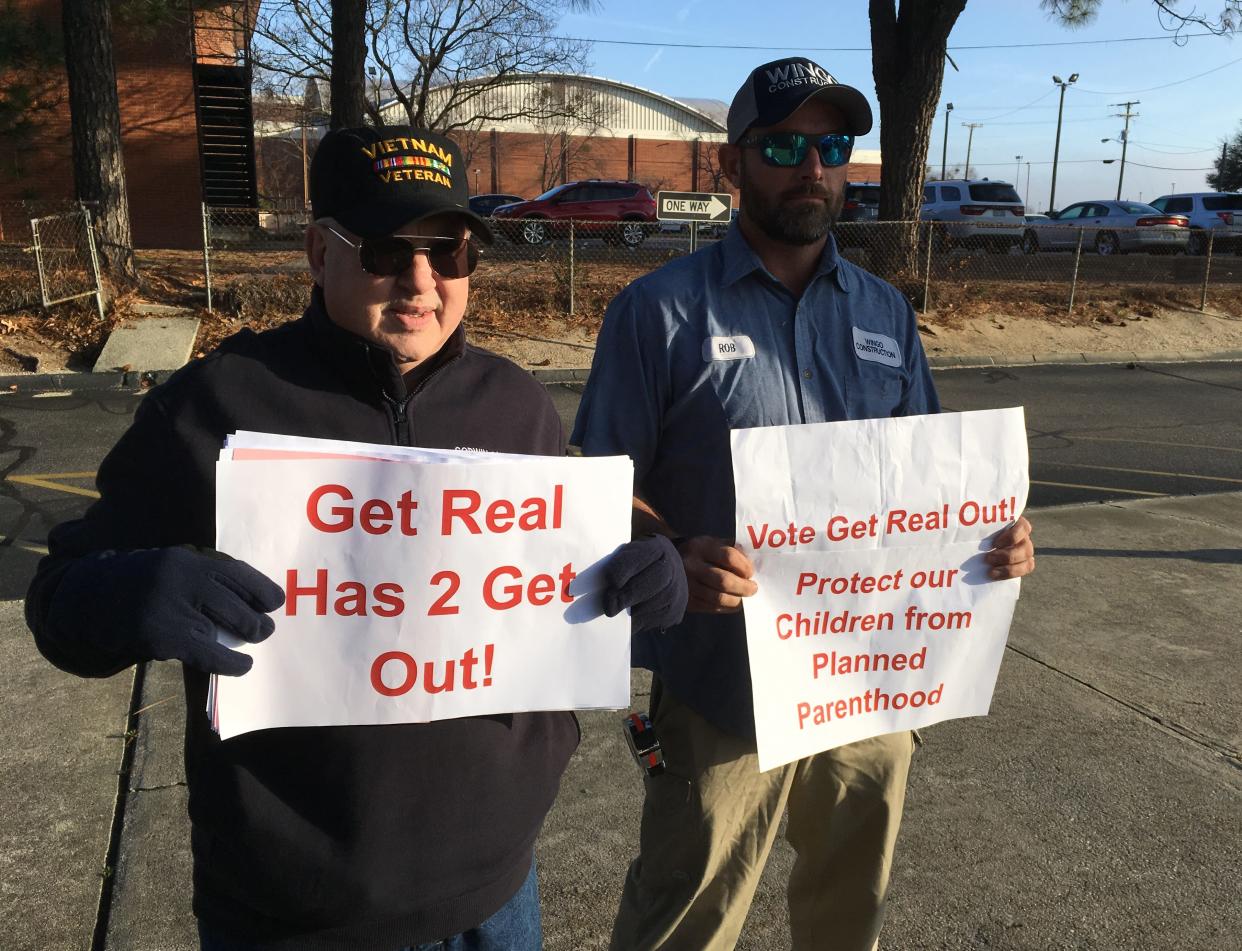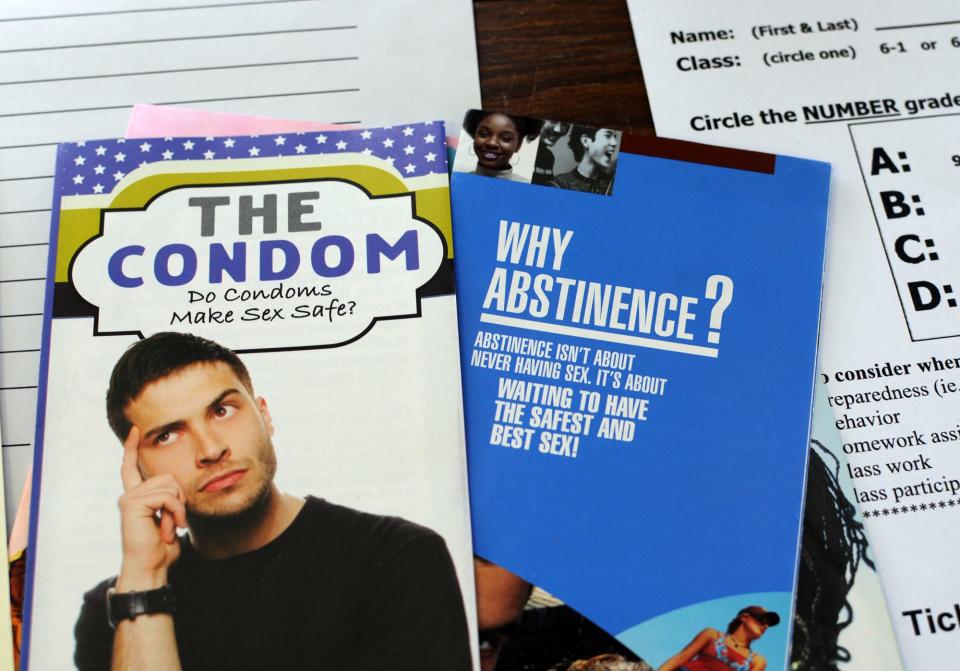What is taught in NC sex ed? State law promotes abstinence, heterosexual relationships

In 2016, Cumberland County Schools shifted to a new sex education program that was comprehensive, science-based and promoted risk reduction.
The program, Get Real, delayed sexual activity in teens, according to statistics.
But some Cumberland County parents quickly became outraged, protests began, and Get Real was put on hold in October 2017. It was later removed entirely from the district curriculum.
The outrage was in part because of the program’s affiliation with Planned Parenthood, the Fayetteville Observer reported. The sex education program was developed by the Planned Parenthood League of Massachusetts and focuses on abstinence and developing healthy relationships.
Today, as America confronts the impact of last week's Supreme Court decision to end constitutional protections for abortion that had been in place nearly 50 years, many North Carolina students still do not receive in-depth sex education.
State law does not require schools to teach comprehensive programs, and mandates that sex education programs in schools teach students that abstinence and a “faithful, monogamous heterosexual marriage” is the best way to avoid sexually transmitted diseases.
Sex education in North Carolina
North Carolina is ranked 20th in the nation for teen birth rates, according to the organization Power to Decide. For rates of chlamydia infection, it is ranked eighth, according to World Population Review.
Some North Carolina students aren’t even learning about contraceptives in sex education, advocates say.
State law requires schools provide comprehensive sex education programs that include lessons on “reproductive health and safety” and preventing STDs and HIV, though many decisions on sex education are left for local school boards to approve.
Materials must be objective and science-based, according to state law. It is required to teach that students are expected to remain abstinent outside of marriage and provide skills and strategies for avoiding sexual activity.
Statutes also outline that students should be taught about sexual assault and abuse, including what constitutes assault and how to prevent it while focusing on healthy relationships. Sex education should also teach about human trafficking prevention and awareness.
North Carolina law allows school boards to choose whether to provide students with information on where to obtain contraceptives and abortions.
State law requires districts to allow parents and guardians an opportunity to review materials and choose to withhold their students from sex education.

What is actually taught in schools?
According to a flow chart available on the New Hanover County Schools website, parents can choose between two sex education programs.
Both promote abstinence as the "expected standard for all school-aged children” as required by the state, but only one is comprehensive.
The program Stepping Stones to a Better Life teaches students about making responsible decisions, as well as sexual orientation and gender roles. It also teaches about emergency contraceptives like the 'Plan B' morning after pill, and different forms of birth control.
The other program, My Life, is an abstinence-based program that does not teach about contraceptives. It also does not teach students how to conduct breast and testicular self-examinations to check for cancer, how to address peer pressure, self-esteem or sexual orientation.
Students take sex education courses in sixth through eighth grade, as well as a “growth and changes” course in fifth grade.
New Hanover County Schools declined to comment on sex education available in the district. It’s unclear how many students, on average, take the Stepping Stones course versus the My Life course.
Cumberland County Schools said in an emailed statement that it follows state guidelines on providing sex education to students in seventh through ninth grade, but offered no further comments.
After Cumberland eliminated the Get Real plan, it returned to a program the district has used since 2009, according to reporting in the Fayetteville Observer.
The implications of Roe v. Wade
With last week's Supreme Court decision to strike down Roe v. Wade, 26 states are anticipated to soon ban abortion. Of those 26 states, half have no mandate that schools must teach sex education, according to data from the Guttmacher Institute, an abortion rights research organization that was once part of Planned Parenthood.
But studies show that teens who receive comprehensive sex education are far less likely to have unwanted pregnancies.
The states with the highest rates of teen pregnancies according to the CDC – Mississippi, Arkansas, Louisiana, Oklahoma and Alabama – are all set to outlaw abortions following the Roe decision.
North Carolina is among only 29 states that require sex education in schools, and the extent of content required in sex education in those states varies. Currently, abortion is legal in North Carolina, and the Roe decision is not set to trigger outlawing of abortion in the state.
North Carolina will likely become a key state that allows abortion access as the Roe decision triggers immediate bans on abortion in many surrounding states, according to USA Today.
North Carolina, Kansas and Florida are considered key locations where women in Southern states could travel for legal abortions.
There are 14 abortion clinics in North Carolina, and if it were to outlaw abortion in the future, it would disproportionately impact low-income women, pro-abortion rights advocates say.
Reporter Sydney Hoover can be reached at 910-343-2339 or shoover@gannett.com.
This article originally appeared on Wilmington StarNews: NC sex education promotes abstinence, heterosexual relationships

